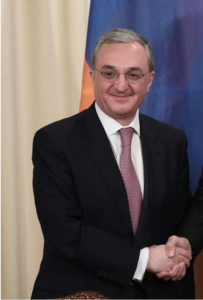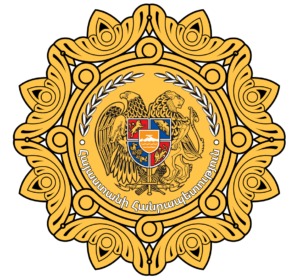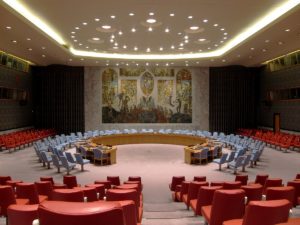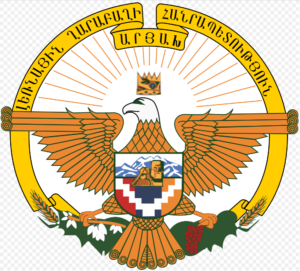Compte-rendu par le Irish Times par Lara Marlowe le 25/02/2020 de la conférence de Renaud Girard* au cercle interallié du lundi 24 février 2020, intitulée « Peut-on encore compter sur nos alliés américains ? »
On a weekday evening, members of the French establishment queued to enter the Cercle Interallié, one of the most exclusive clubs in Paris, to hear Renaud Girard, an editorial writer for the conservative daily Le Figaro, address the question: “Can we still count on our US allies?”
There was standing room only in the upstairs salon, which was replete with tapestries, crystal chandeliers and gilt mouldings. France’s alliance with the US dates back to their respective 18th-century revolutions, but like all great love affairs it has had its ups and downs. Now the French observe the presidency of Donald J Trump with a mixture of fascination and revulsion.
Americans have short memories. The French forget nothing. Girard began with an image of American doughboys who had just saved France, in the garden outside, at the end of the first World War. “In our minds, the alliance with the US dates from this period,” he said.
“The Americans have been, are and will remain our friends.”
But a formal alliance was something different. Girard recounted Trump’s abrupt abandonment of the US’s Syrian Kurdish allies last October, after the Kurds lost 11,000 men and women fighting Islamic State. “Trump said the Kurds hadn’t participated in the 1944 Normandy landings. We already knew that.” The audience groaned.
It wasn’t the first time the US left allies in the lurch, Girard continued, referencing desperate Vietnamese scrambling onto a helicopter atop the US embassy in Saigon in 1975. The US abandonment of South Vietnam led to “the fall of Phnom Penh, the Cambodian genocide, the Communist takeover and the boat people”, he added.
History repeating itself
History kept repeating itself. Domestic policy dictated US foreign policy. The Americans believed their laws trumped (!) international law. The US Congress failed to ratify the Treaty of Versailles that ended the first World War. As a result, the US refused to stop German rearmament in the 1930s and France lacked the courage to go it alone on the issue.
Many decades later, Trump cancelled US adherence to international treaties on climate change and the Iranian nuclear programme.
Barack Obama and David Cameron swore Bashar al-Assad’s use of chemical weapons in the Syria conflict would be a “red line” requiring retaliation. However, Les Anglo-Saxons backed down on this, and François Hollande was hung out to dry.
Nor have US presidents been great at consulting their French allies. Richard Nixon pulled out of the gold standard in 1971, destroying the post second World War international monetary system, without a prior word to Paris.
Emmanuel Macron might have understood Trump wanting to pull US troops out of Syria, Girard said, if only the US leader had had the good manners to call Macron beforehand.
De Gaulle’s discussion with US general Lauris Norstad, then Nato’s supreme allied commander Europe, cast new light on de Gaulle’s withdrawal from the Nato integrated command in 1966. “De Gaulle asked Norstad how many US nuclear warheads were stationed in France, and where they were located,” Girard recounted. “Norstad said he could not tell him.”
Difficult relationship
Paris’s difficult relationship with Washington could almost be told in soundbites. The leaked telephone conversation in 2014 regarding US plans to install a pro-Nato government in Kiev. “F**k the EU,” US assistant secretary of state Victoria Nuland told the US ambassador to Ukraine in the call.
And the vow of Condoleezza Rice, George W Bush’s secretary of state, to “forget Russia, forgive Germany and punish France” for opposing the 2003 invasion of Iraq.
Then president Jacques Chirac warned Bush that the invasion would create “thousands of Bin Ladens and install a Shia government in Baghdad”, Girard recalled. Bush asked why everyone kept talking about Shias. “He said, ‘I thought everybody in Iraq was Muslim.’ One must never underestimate the ignorance of leaders.”
Years later, “all the US newspapers and talk shows were asking, ‘How were we stupid enough to invade Iraq?’” Girard recalled. “Not once did anyone remember, ‘We have an old ally who gave us good advice.’”
Despite past Trump statements questioning the US commitment to article 5 of the North Atlantic Treaty, Girard thought the US could be relied upon to defend the Baltic states and Poland. At the Munich Security Conference earlier this month, US secretary of state Mike Pompeo made it clear that the West comprised “an overlord and vassals”, Girard said.
The overlord had a duty to protect the vassals. “That is not an alliance as we French conceive of it, between equals, based on principles of multilateralism . . . Where France’s vital interests are concerned, we must count on our own forces,” Girard concluded.
De Gaulle could not have said it better.
*Renaud Girard, membre du Conseil d’orientation stratégique chez Geopragma






